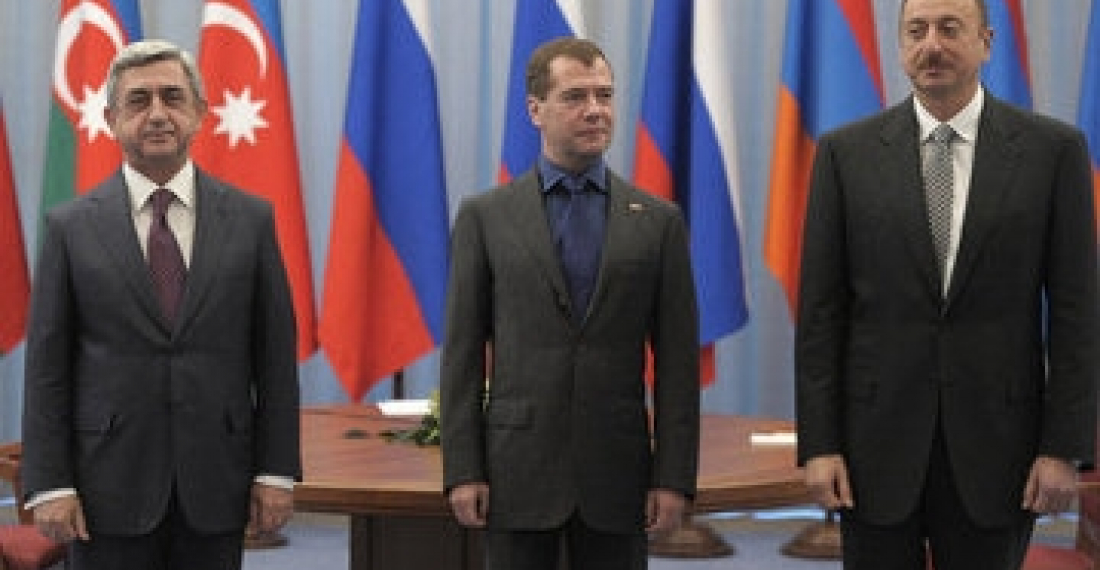Presidents of Armenia and Azerbaijan, Serzh Sargsyan and Ilham Aliyev, will hold another round of negotiations through mediation of their Russian counterpart Dmitry Medvedev in Sochi on January 23-24, a source in the Russian diplomatic circles told ArmInfo.
The key topic of the meeting will be Nagorny Karabakh's status. The press-service of the Armenian president has not yet confirmed this report.
The last trilateral meeting of the presidents was in Sochi on March 5 2011. Earlier they met on January 25 2010 again in Sochi.
The OSCE Minsk Group represented by co-chairs from Russia, U.S. and France has been mediating in the conflict's resolution since 1992. At present the peace process is based on the Madrid Principles suggested by the OSCE MG in 2007 in Madrid and renovated in 2009. Armenia accepts the Madrid Principles on condition that Nagorny Karabakh will never be part of Azerbaijan, while Azerbaijan accepts the document with a reservation that. Nagorny Karabakh must be part of Azerbaijan with the widest autonomy.







